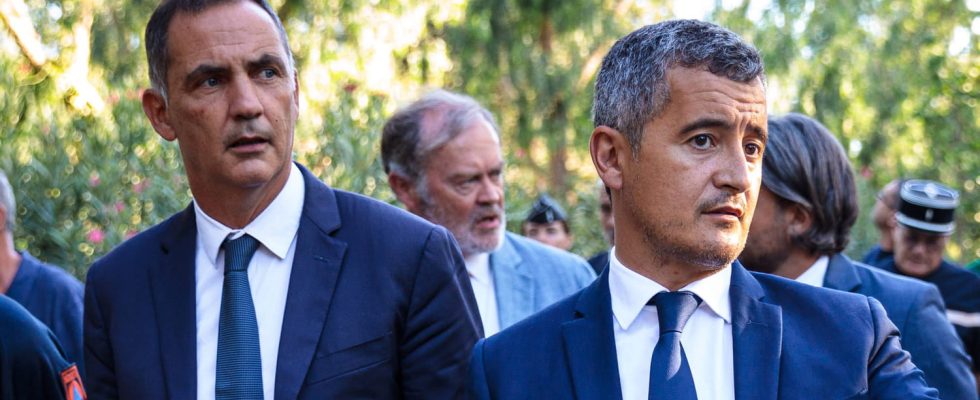An agreement on the “autonomy status of Corsica within the Republic” was reached between Gérald Darmanin and the elected islanders on the night of March 11 to 12. But how far does the autonomy and powers granted to Corsica extend?
The “Beauvau process” did result in an agreement on the autonomy of Corsica between the State and representatives of the island of beauty. After a five-hour long meeting on the night of Monday March 11 to Tuesday March 12, the Minister of the Interior Gérald Darmanin announced the constitutional revision project concerning “the recognition of an autonomous status” of the island ” within the Republic. The agreement focused more specifically on the first paragraph of the constitutional writing which was worded as follows: “This constitutional writing provides for the recognition of a status of autonomy for Corsica within the Republic which takes into account its own interests linked to its Mediterranean insularity, to its historical, linguistic and cultural community having developed a singular link to its land.
The agreement reached “respects both the red lines set by the President of the Republic and myself, and also the time allocated” by Emmanuel Macron declared Gérald Darmanin. A period of six months due to end at the end of March was left to the minister to decide and find a solution on the status of Corsica. Also satisfactory for Gilles Simeoni, the autonomist president of the executive council of Corsica who welcomes a “decisive step” for the island territory.
Autonomous Corsica, but not independent
Corsican representatives have been campaigning for years to obtain a special status for Corsica due to the particularities of the territory. A request which was heard with the agreement of an autonomous status, but Gérald Darmanin insisted on the fact that this autonomy does not take the island out of the scope of the French Republic: “There is no separation of Corsica with the Republic”. This was an insurmountable line for the State which refused to recognize or even mention in the constitutional writing “the people”, “the status of resident” or “the co-officiality of the Corsican language”.
“There is no concept of people [corse] but of a cultural community” insisted the minister, ruling out the establishment of a “resident status” and the distinction between “two categories of citizens” between the Corsicans and the other inhabitants of the island, in particular those from the continent .
Legislative power recognized for Corsican elected officials
The autonomy of Corsica must, however, to be effective, be accompanied by certain freedoms granted to elected officials and to the local Assembly which is already a particularity of the island territory. The agreement between the government and elected officials therefore provides for granting legislative power to local elected officials. Concretely, this means that “laws and regulations can be subject to adaptation” on the island, explained Gérald Darmanin. This legislative power will still remain subject to the control of the Constitutional Council which retains a right of review over all French, and therefore Corsican, legislative texts.
How far will the legislative power of the Corsican Assembly extend? The nationalist elected officials wanted to have forecasts as to the areas in which they could adapt the laws such as land, taxation, the economy or even culture, as recalled France 3. But no answer has yet been given to this question. “The extent and modalities of exercise of this legislative power […] will come under the organic law” indicated Gilles Simeoni. Which will be defined once the constitutional reform is adopted.
The agreement on the autonomy of Corsica not yet voted on
The conclusion of an agreement after two years of discussions between the government and Corsican elected officials is significant progress on the issue of the island’s autonomous status. But several steps must still be taken for the text to come into force. The constitutional writing must now be presented and voted on by the Corsican Assembly. Once the approval of local elected officials has been obtained, “the President of the Republic will initiate constitutional reform, whenever he wishes”, continued the minister. As with each constitutional revision, the text should be voted on in identical terms by the National Assembly and the Senate before being adopted by the Parliament meeting in Congress in Versailles by a 3/5th majority.
